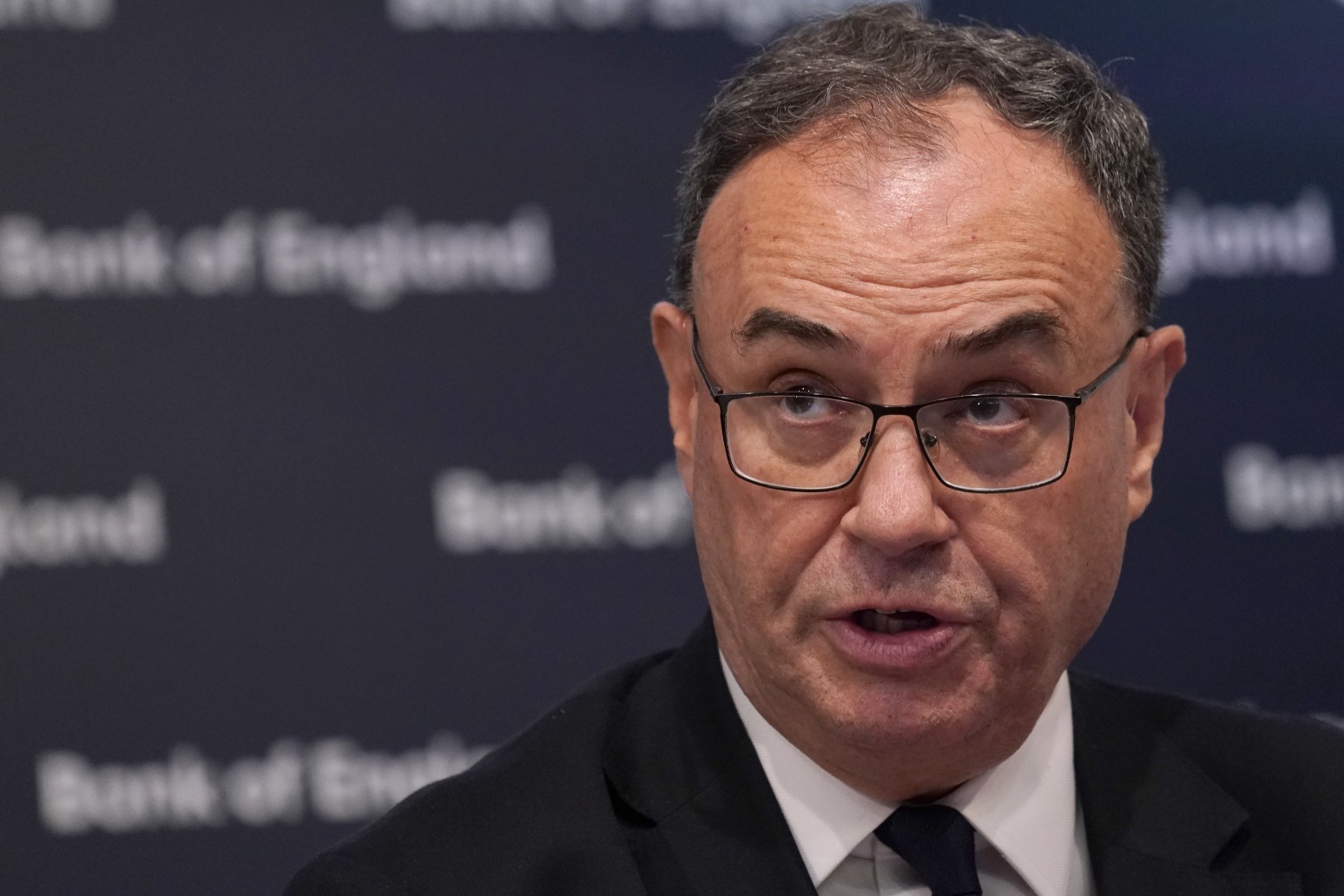
Bank of England Governor Andrew Bailey has said interest rate cuts could become “more aggressive”, sparking falls in the value of the pound.
He said that, if inflation remains in check, the Bank might be able to be “more activist” over reducing borrowing costs.
The pound fell by nearly 1% against the US dollar and the euro – to 1.317 US dollars and 1.193 euros respectively – after he told The Guardian newspaper that rate cuts could become “a bit more aggressive”.
It signals a possible change in stance from Mr Bailey, who recently said the Bank would only lower rates “gradually”.
The Bank cut rates to 5% from 5.25% in August, marking the first reduction since March 2020, after inflation returned to the 2% target.
Inflation has since edged back up to 2.2% and experts have been forecasting just one more rate reduction before the year end, to 4.75%.
The Bank is expected to cut rates next month by another quarter percentage point, but Kathleen Brooks, research director at XTB, said that, following Mr Bailey’s comments, financial markets also now see a 61% chance of another reduction in December.
“The market has used Mr Bailey’s comments as a green light to price in more monetary loosening,” she said.
Mr Bailey also said in the Guardian interview that the Bank is monitoring developments in the Middle East “extremely closely” amid steep rises in the cost of oil, which surged this week after the Israeli invasion of southern Lebanon and Iran’s missile attack in response.
He said: “Geopolitical concerns are very serious.
“It’s tragic what’s going on.
“There are obviously stresses and the real issue then is how they might interact with some still quite stretched markets in places.”
A report from the Bank’s Financial Policy Committee (FPC) on Wednesday warned that global financial markets are vulnerable to shocks following a “spike in volatility” over the summer amid uncertainty over the geopolitical situation worldwide.
But Mr Bailey said oil prices have not seen the eye-watering increases of the past in the year since the Hamas attack on Israel.
He said: “From the point of view of monetary policy, it’s a big help we haven’t had to deal with a big increase in the oil price.
“But obviously we’ve had that experience in the past, and in the 1970s the oil price was a big part of the story.
“Obviously we keep watching it. We watch it extremely closely to see the impact of the latest news.”
He warned that, while markets are remaining stable, “there’s also recognition there’s a point beyond which that control could break down if things got really bad”.
Published: by Radio NewsHub









